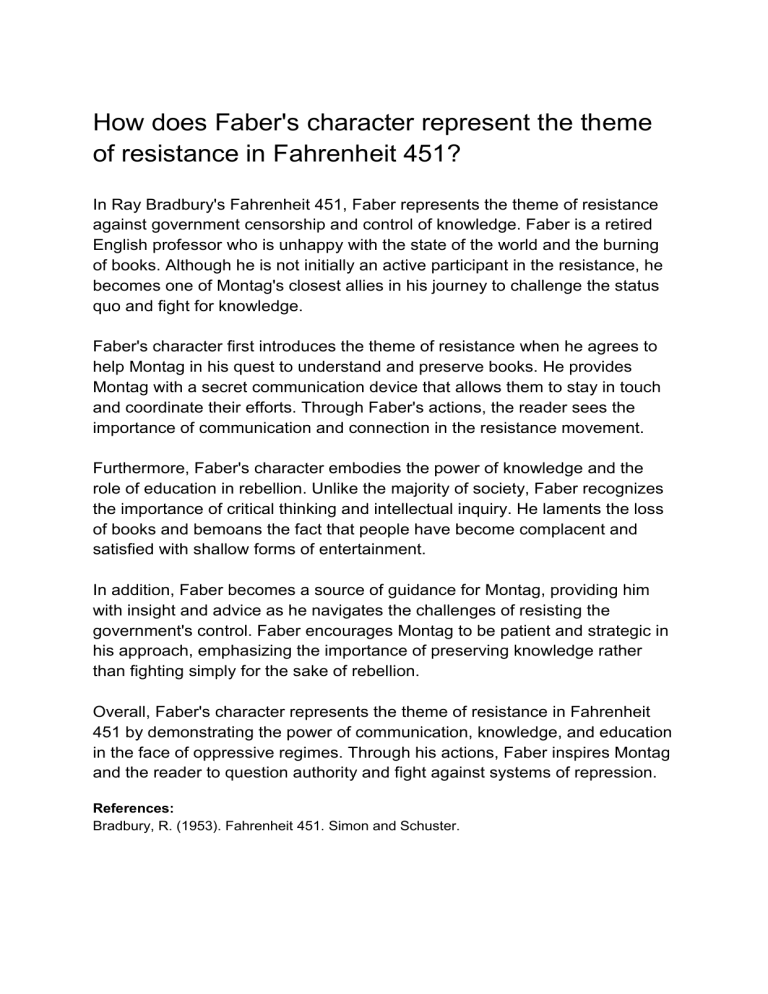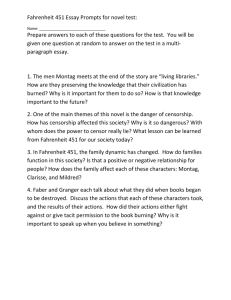How does Faber s character represent the theme of resistance in Fahrenheit 451
advertisement

How does Faber's character represent the theme of resistance in Fahrenheit 451? In Ray Bradbury's Fahrenheit 451, Faber represents the theme of resistance against government censorship and control of knowledge. Faber is a retired English professor who is unhappy with the state of the world and the burning of books. Although he is not initially an active participant in the resistance, he becomes one of Montag's closest allies in his journey to challenge the status quo and fight for knowledge. Faber's character first introduces the theme of resistance when he agrees to help Montag in his quest to understand and preserve books. He provides Montag with a secret communication device that allows them to stay in touch and coordinate their efforts. Through Faber's actions, the reader sees the importance of communication and connection in the resistance movement. Furthermore, Faber's character embodies the power of knowledge and the role of education in rebellion. Unlike the majority of society, Faber recognizes the importance of critical thinking and intellectual inquiry. He laments the loss of books and bemoans the fact that people have become complacent and satisfied with shallow forms of entertainment. In addition, Faber becomes a source of guidance for Montag, providing him with insight and advice as he navigates the challenges of resisting the government's control. Faber encourages Montag to be patient and strategic in his approach, emphasizing the importance of preserving knowledge rather than fighting simply for the sake of rebellion. Overall, Faber's character represents the theme of resistance in Fahrenheit 451 by demonstrating the power of communication, knowledge, and education in the face of oppressive regimes. Through his actions, Faber inspires Montag and the reader to question authority and fight against systems of repression. References: Bradbury, R. (1953). Fahrenheit 451. Simon and Schuster.

